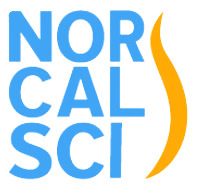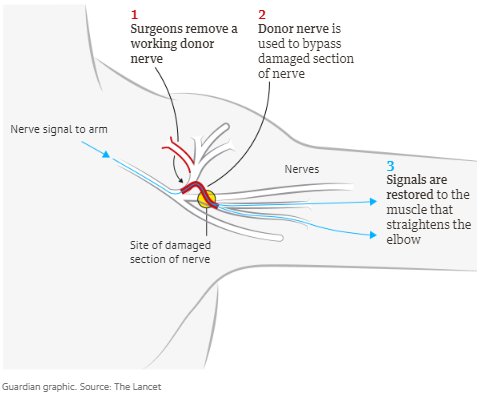SCI MEDICAL BREAKTHROUGH: rewiring the nerves creates path to hand & arm function in quadriplegics
Thirteen young quadriplegic adults with spinal cord injuries as a result of sporting or traffic accidents have had movement in their hands restored through pioneering nerve transfer surgery, enabling them to feed themselves, hold a drink, write and in some cases return to work. Nerves were taken from shoulders and transplanted into paralyzed muscles in the arm so that they bypassed the injury and connected back up to the spinal cord. Ten of the patients had nerve transfers to one arm and tendon transplants in the other. Four nerve transplants in three patients failed, but the team says tendon transplant is then available as a backup.
Two years on from surgery, the patients have significant improvements in their hand function, particularly enough pinch and grasp strength to carry out most tasks of daily living. Patients in the trial had quadriplegia affecting movement in all their limbs but crucially, they were still able to move some muscles in their upper arms. The functioning nerves leading from the spinal cord to these muscles were then rewired. The nerves were cut and then attached to nerves that control other muscles - such as for extending the arm or opening or closing the hand. For example, nerves that once turned the palm up to face the ceiling could be used to extend all the fingers in the hand. So now when a patient thinks of rotating their hand, their fingers extend.
Will this work for all patients? It depends on the type of injury. If the injury is so far up the spinal cord that it causes complete paralysis, then there will be no functional nerves to rewire. Additionally, they’re seeing better results when this procedure is done 6-12 months post-injury, so it’s not likely to be as successful with longer-term injuries. You can read more about it HERE.


